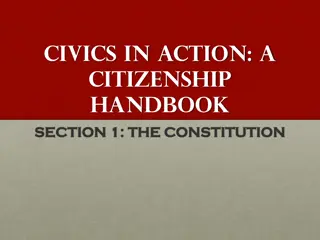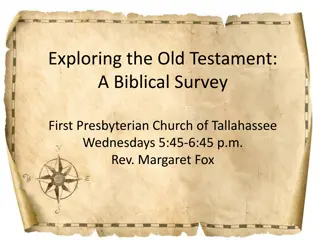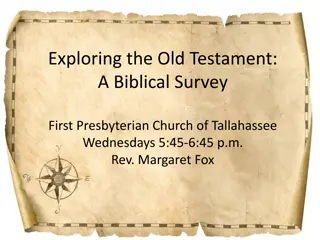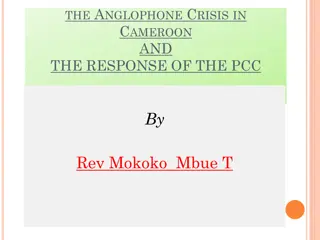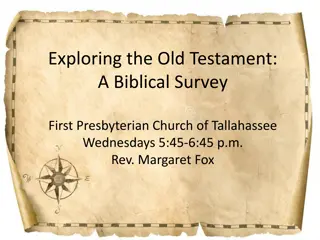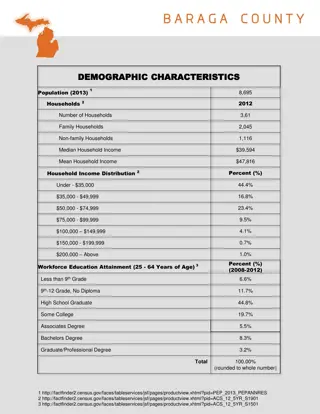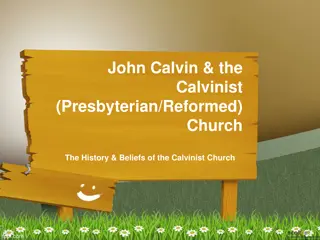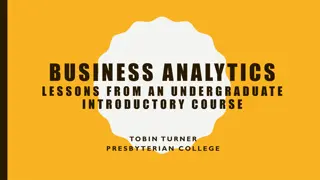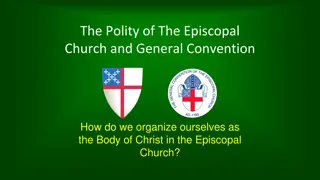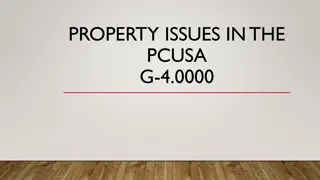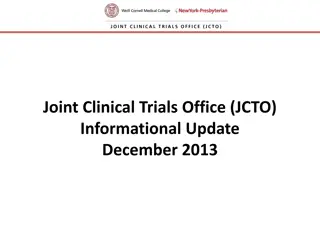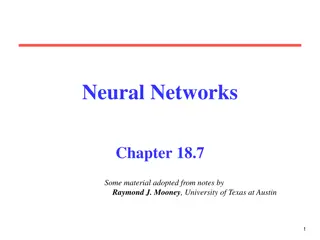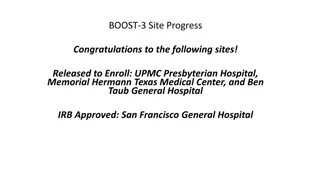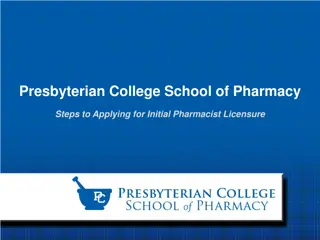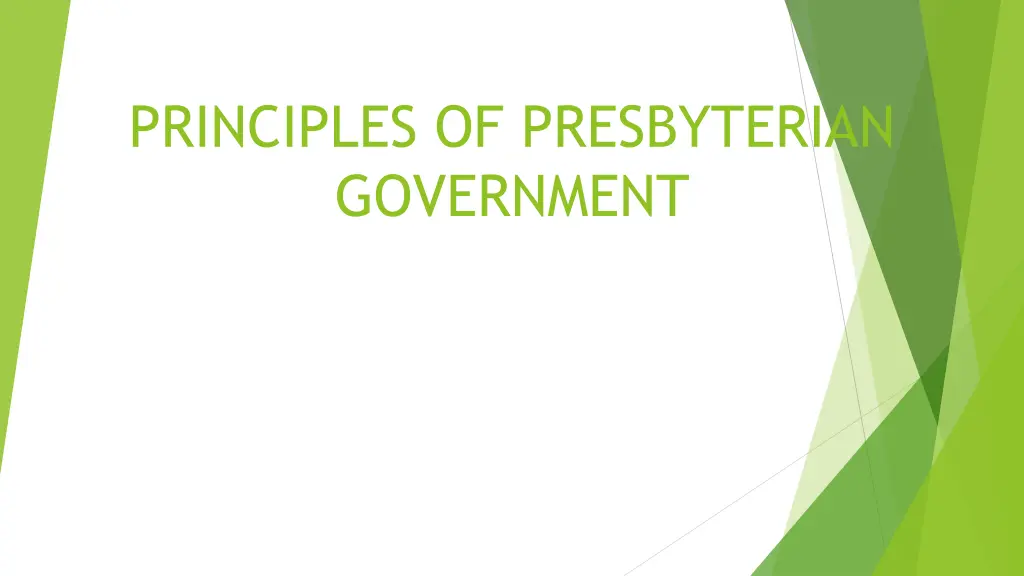
Principles of Presbyterian Church Governance
Explore the foundational principles of Presbyterian church governance, including unity, leadership by presbyters, council hierarchy, decision-making processes, ordination practices, shared power, and administrative authority. Delve into the structure and values that guide the Presbyterian Church (U.S.A.) in fulfilling its mission and serving its members.
Download Presentation

Please find below an Image/Link to download the presentation.
The content on the website is provided AS IS for your information and personal use only. It may not be sold, licensed, or shared on other websites without obtaining consent from the author. If you encounter any issues during the download, it is possible that the publisher has removed the file from their server.
You are allowed to download the files provided on this website for personal or commercial use, subject to the condition that they are used lawfully. All files are the property of their respective owners.
The content on the website is provided AS IS for your information and personal use only. It may not be sold, licensed, or shared on other websites without obtaining consent from the author.
E N D
Presentation Transcript
PRINCIPLES OF PRESBYTERIAN GOVERNMENT
Principles 1 and 2 F-3.0201 One Church The particular congregations of the Presbyterian Church (U.S.A.) wherever they are, taken collectively, constitute one church, called the church. F-3.0202 Governed by Presbyters This church shall be governed by presbyters, that is, ruling elders and teaching elders (also called ministers of the Word and Sacrament).
Principles 3 and 4 F-3.0203 Gathered in Councils These presbyters shall come together in councils in regular gradation. These councils are sessions, presbyteries, synods, and the General Assembly. F-3.0204 Seek and Represent the Will of Christ Presbyters are not simply to reflect the will of the people, but rather to seek together to find and represent the will of Christ.
Principles 5 & 6 F-3.0205 Decision by Majority Vote Decisions shall be reached in councils by vote, following opportunity for discussion and discernment, and a majority shall govern. F-3.0206 Review and Control A higher council shall have the right of review and control over a lower one and shall have power to determine matters of controversy upon reference, complaint, or appeal.
Principles 7 & 8 F-3.0207 Ordination by Council Presbyters (ruling elders and ministers of the Word and Sacrament) and deacons are ordained only by the authority of a council. F-3.0208 Shared Power, Exercised Jointly Ecclesiastical jurisdiction is a shared power, to be exercised jointly by presbyters gathered in councils.
Principle 9 F-3.0209 General Authority of Councils Councils possess whatever administrative authority is necessary to give effect to duties and powers assigned by the Constitution of the church. The jurisdiction of each council is limited by the express provisions of the Constitution, with powers not mentioned being reserved to the presbyteries.



